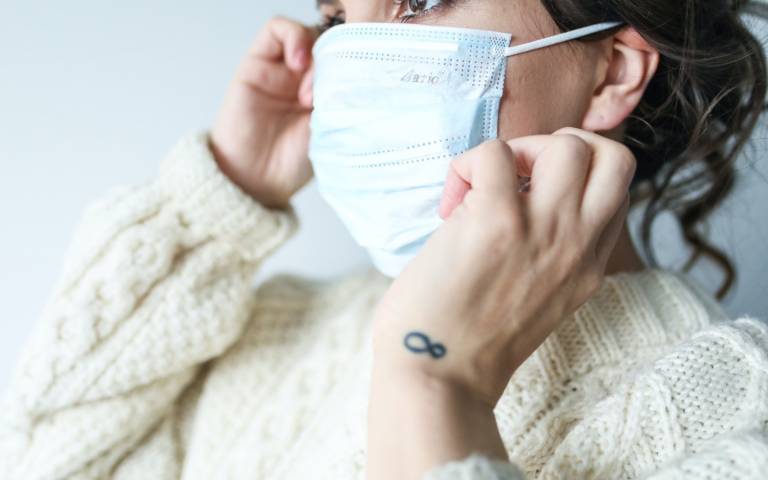Stress over Covid-19 keeping fewer people up at night
17 April 2020
Stress related to Covid-19 has steadily fallen since lockdown began, along with general levels of anxiety, according to UCL’s Covid-19 study, the UK’s largest study on adults’ wellbeing and mental health during the coronavirus epidemic.

The study, which was launched a month ago, has over 74,000 participants and reports on how adults feel about the lockdown, government advice, feelings of loneliness and wellbeing, and their mental health.
According to the latest results, just under one in five people report that Covid-19 has caused them major stress over the past week, down from more than one in three people in the days before lockdown was introduced. Major stress was defined as stress that was constantly on your mind or keeping you awake at night.
The survey found that wellbeing has also increased in the last three weeks, with people reporting higher levels of satisfaction with their life, although this is still lower than at the same time last year. There is also less evidence for improvements in wellbeing among people aged 18 to 29 and for those with a diagnosed mental health condition.
Meanwhile, the latest results found that levels of compliance with government lockdown measures remained steady and high, with more than 98% of people reporting high compliance.
Lead author Dr Daisy Fancourt (Associate Professor of Epidemiology, UCL Epidemiology & Health Care) said: “It is encouraging to see a decline in stress related to Covid-19 and anxiety in general. However, stress, anxiety and depression remain at high levels for people living alone, with a lower household income or with a diagnosed mental health condition.
“Fortunately, there is no sign that worries about money or employment have increased with longer isolation. But it remains to be seen how this evolves over the coming weeks. Worries relating to accessing food have decreased around four-fold from when lockdown began.”
The researchers found that immediately before the lockdown, the public were most worried about getting Covid-19, but since social distancing and social isolation measures have come in, this has decreased - suggesting that the measures are helping people to feel safe.
The full UCL Covid-19 study report shows breakdowns by age groups, gender, income, and whether people are living alone or have reported diagnosed mental health conditions.
Professor Andrew Steptoe (UCL Institute of Epidemiology and Health Care), a co-author of the study, added: “Although this study is not representative of the population, we are pleased that such a large number people are participating in the study and have sent us data. This gives us a snapshot of how people are feeling and coping during the lockdown and allows us to track changes over time as the situation evolves.”
The study is still recruiting and participants can sign-up anonymously at www.marchnetwork.org/research.
Links
Image
Photo by Polina Tankilevitch from Pexels
Media contact
Mark Greaves
Tel: +44 (0)7539 410 389
Email: m.greaves [at] ucl.ac.uk
 Close
Close

